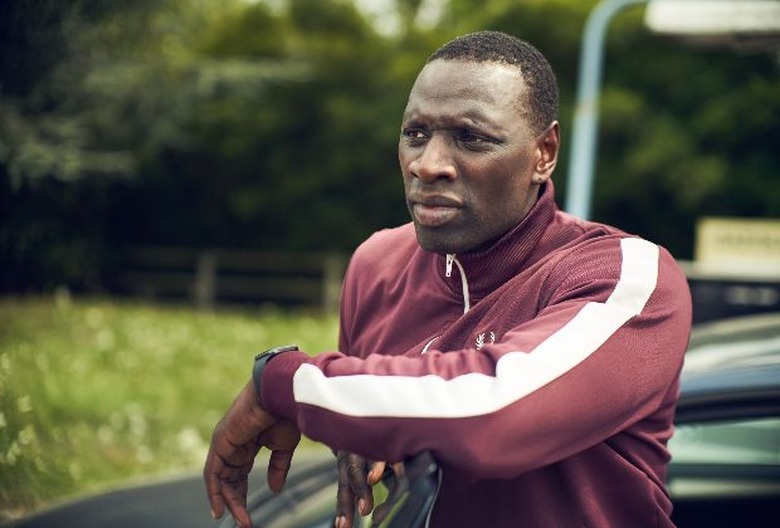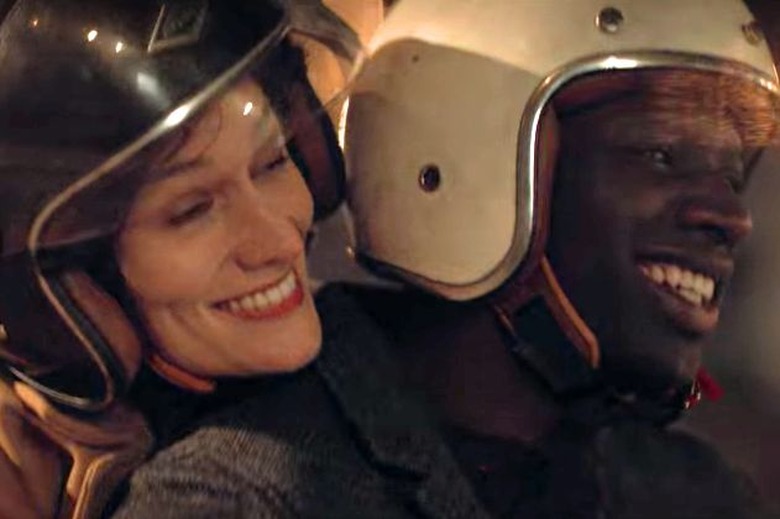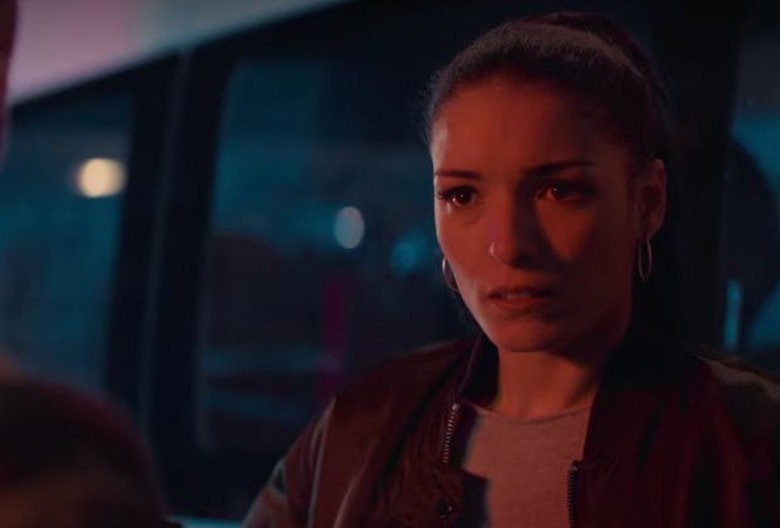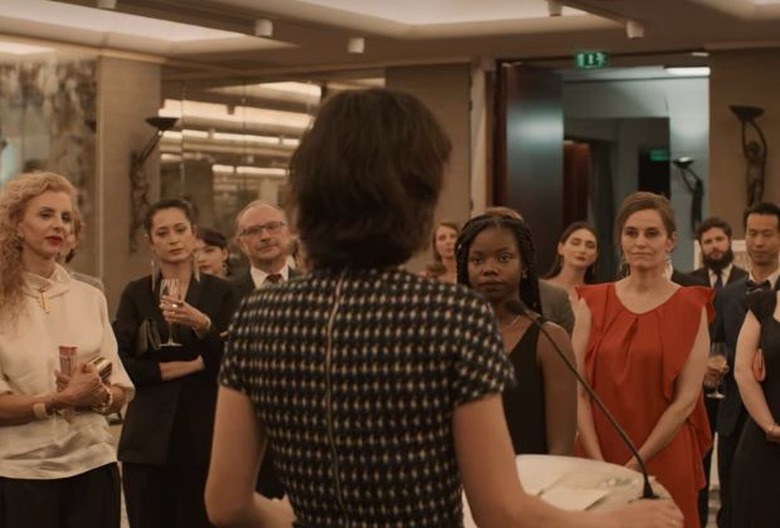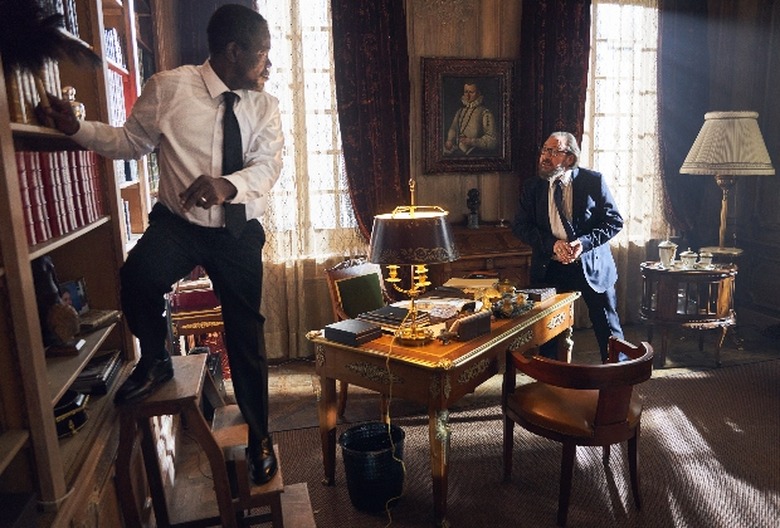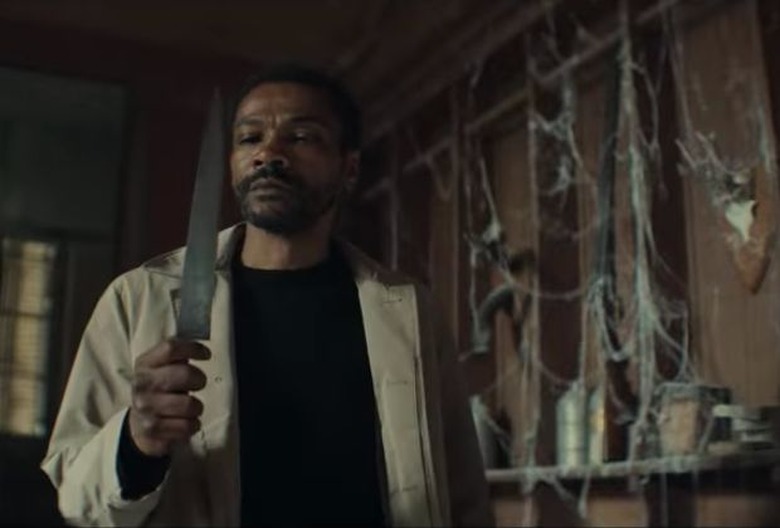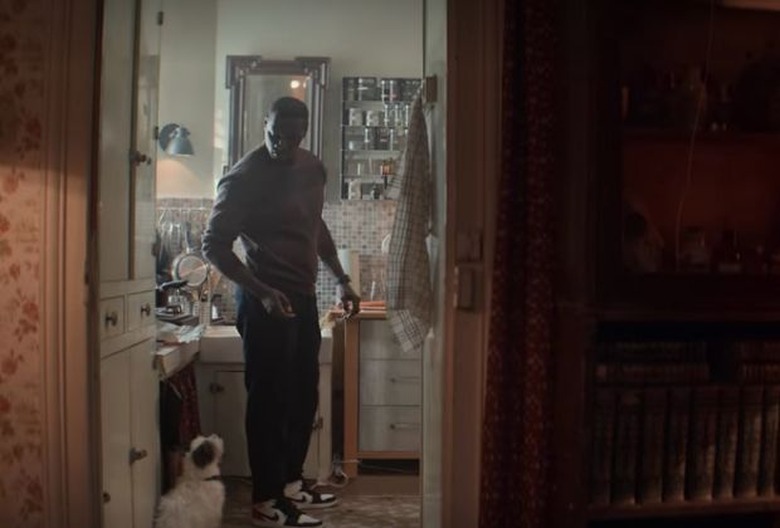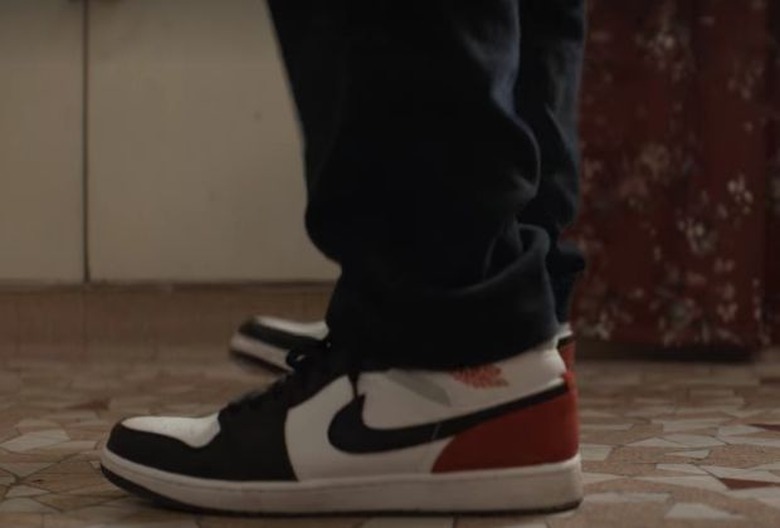It's Time To Talk About Lupin's Problematic Lack Of Black Women
For all of the nuanced ways that Netflix's wildly popular Lupin addresses race and immigrant culture in Parisian society, the caper drama misses the boat with Black women.
It's an omission that has caused rancor in both social and traditional media, on a global scale, from the moment the show's magnetic and handsome star, Omar Sy, first flashed his signature smirk as Assane Diop in January's series premiere. Those same fans were further disappointed when Lupin Season 2 kicked off in June and producers attempted to dial up its Black woman quotient by briefly adding a biracial police woman in one scene, and playing a Lizzo song in another (more on that later).
Needless to say, both actions ultimately failed to move the needle, and in some ways only further underscored the dearth in representation.
While there are some who have bemoaned the fact that all of Assane's love interests and friends are white, that could just as easily be associated with proximity. (After all, he attended a predominantly white school.) The more confounding element is that his Black mother is nonexistent — even in flashbacks. Assane, a master thief and diehard Arsene Lupin fan who burglarizes the rich much like his hero, does so only to avenge the wrongful imprisonment and death of his father, who is shown via past recollections. But Assane never mentions his mom. There's not even a photo.
Perhaps Lupin creators George Kay and Francois Uzan genuinely didn't comprehend the importance of representation ... the first time around. But the adjustments made in Season 2 suggest an attempt to do too little too late, and the series would have benefitted from writers or a consultancy team of color. After all, even Lupin believes in the power of numbers.
Here are seven faux pas the EPs could've avoided regarding Black women — and points worth considering before the start of Season 3.
Motorcycle Memories With Lizzo
On the one hand, good for Lizzo for securing the bag as her hit song "Cuz I Love You" played overhead as Assane and Juliette (Clotilde Hesme) romantically sped through the streets of Paris on a "stolen" motorcycle in Season 2, Episode 3. On the other hand, one could interpret the use of the song as a big ol' middle finger to Black women viewers who wished they were the ones on the back of that motorcycle. Lizzo even talks about getting her "pressed hair" wet. Come on!
That One Black Lady Cop
It's hard to decide what's more problematic — the fact that the sole Black/biracial woman police officer has no name, or that (Season 2 finale spoiler alert!) she's the one who snitches on Assane when he tries to escape in the Season 2 finale. Sigh. At least actress Sieme Miladi, who plays the officer, got a couple of lines and a credit.
Black Lady Art Lover
Sieme Miladi is luckier than the Black background actress, pictured here, who isn't credited and (again) doesn't have a character name. But this woman is noticeable, if for no other reason than there aren't a lot of women on Lupin who look like her. She appears to like art... and has the same disdainful, blank stare as Black women viewers who long to see themselves on this series, but simply don't.
Who Widowed Babakar?
Assane's mom is neither discussed nor shown in Season 1 or 2. But we do get to meet his widowed father Babakar (played by Fargass Assande), whom the villainous Pellegrini (Herve Pierre) frames for stealing a necklace. (The rich man still owns the jewelry but uses the staged theft to collect the insurance payout, and Babakar is wrongfully imprisoned.) But as a single dad, even if we never got to meet/see his late wife, where are Assane's aunts? Surely this boy has a Black woman relative somewhere, so why not have her pull up?
Leonard the Villain
There were so few Black women on Lupin that it would've even been a step in the right direction if Leonard (Adama Niane) had gone home to a Black wife or friend. Yes, we know that Leonard was a villainous henchman who Pellegrini callously disposed of, but still. Surely even Leonard knows a Black woman or two.
Assane's Motown Moves
The world loves Motown. However, as Assane bopped and wiggled the junk in his trunk to the Four Tops' "Reach Out (I'll Be There)," some viewers couldn't help but wonder if his mom showed him those moves (or taught him how to cook). Sure, it was also the scene where one hitman killed another in order to frame Assane for murder, but this would've also been a great moment to insert a memory of his mother, no?
Lastly, Those Air Jordans...
Product placement deals aside, there is something very urban and American about a Black man in old school Air Jordan sneakers. Perhaps it's the hip-hop culture and fashion associated with them, or the familiarity. But... seeing Sy in these shoes was yet another reminder, particularly for Black Girl Sneakerheads, that not all genders of Black people were included in the fun that is Lupin.
